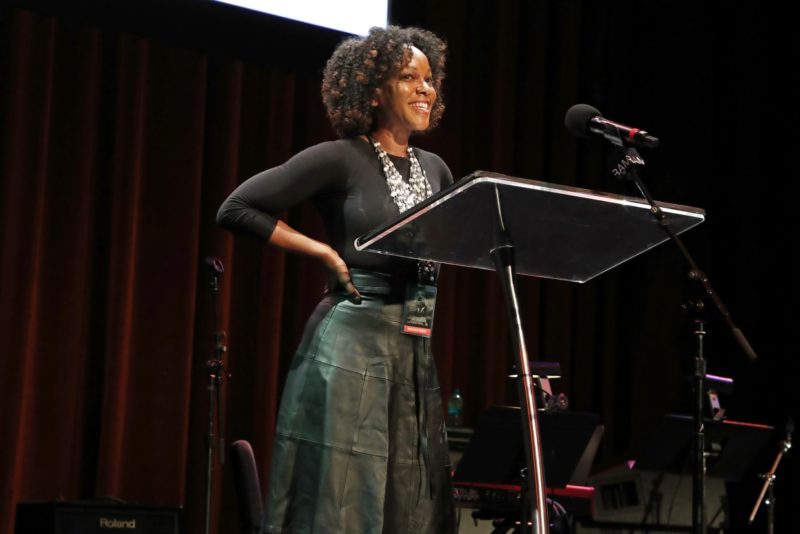In ‘South to America,’ Imani Perry travels below the Mason-Dixon to shed light on the soul of a nation
Share
Explore Our Galleries
Breaking News!
Today's news and culture by Black and other reporters in the Black and mainstream media.
Ways to Support ABHM?
By Elaina Patton, NBC News
In her new book, “South to America: A Journey Below the Mason-Dixon to Understand the Soul of a Nation,” Imani Perry engages with the long literary tradition of writing about one’s travels through the South. Joining writers such as Albert Murray, James Baldwin and V.S. Naipaul, the Alabama native charts the well-worn path into the belly of the country’s most storied region.

Astrid Stawiarz / Getty Images for Brooklyn Academy of Music file
Along the way, she shines a light on some of the area’s overlooked and willfully buried stories, writing from the perspective of a student of Southern history and literature, while crafting a deeply personal narrative about going home.
“History can’t tell everything, ever. So the choices are always political,” Perry told NBC News. “I’m not telling people the whole history of the South. It’s an invitation to consider that, maybe, the [historical] frameworks, or even the battles that we’re having over the frameworks, are not sufficient.”
Perry, a professor of African American studies at Princeton University, spent five years visiting the locations from the Upper South to the Caribbean that are highlighted in the chapters of “South to America.” Until the pandemic hit, she was often driving from place to place. Later, when movement was limited, she found that she could pull on memories from a lifetime of traveling around the South to enrich her accounts.
Read the full article here.
More Breaking News here.









Comments Are Welcome
Note: We moderate submissions in order to create a space for meaningful dialogue, a space where museum visitors – adults and youth –– can exchange informed, thoughtful, and relevant comments that add value to our exhibits.
Racial slurs, personal attacks, obscenity, profanity, and SHOUTING do not meet the above standard. Such comments are posted in the exhibit Hateful Speech. Commercial promotions, impersonations, and incoherent comments likewise fail to meet our goals, so will not be posted. Submissions longer than 120 words will be shortened.
See our full Comments Policy here.